Promise.all([iterable]) is all or nothing, meaning that the promise it returns resolves when every promise in the iterable resolves, or rejects as soon as one of the promises rejects, with the reason of the first promise that rejects (doc).
But what happens if multiple promises of the iterable reject?
In VSCode, I tried the following example, and purposely made both foo() and bar() promises fail. When I debug in VSCode I get an error on * catch(err => Promise.reject('error query bar()'))* saying Exception has occurred and I don't understand why.
I think it is because when I call Promise.reject the Promise.all has already received a reject from the foo function that also fails, but it is not clear what is happening.
If I disable the "Uncaught Exceptions" breakpoint in the debugging options, the exception doesn't show up anymore.
What exactly is happening here?
function foo() {
return pool.query('insert_test into test (value) values (20)')
.then(() => client.query('insert into test (value) values (21)'))
.catch(err => Promise.reject('error query bar()'))
}
function bar() {
return pool.query('insert_test into test (value) values (20)')
.then(() => client.query('insert into test (value) values (21)'))
.catch(err => Promise.reject('error query bar()'))
}
Promise.all([foo(), bar()])
.then(results => {
console.log(results)
})
.catch(err => {
console.log(err)
});
This is a screenshot of what I see with I have Uncaught Exceptions enabled.
